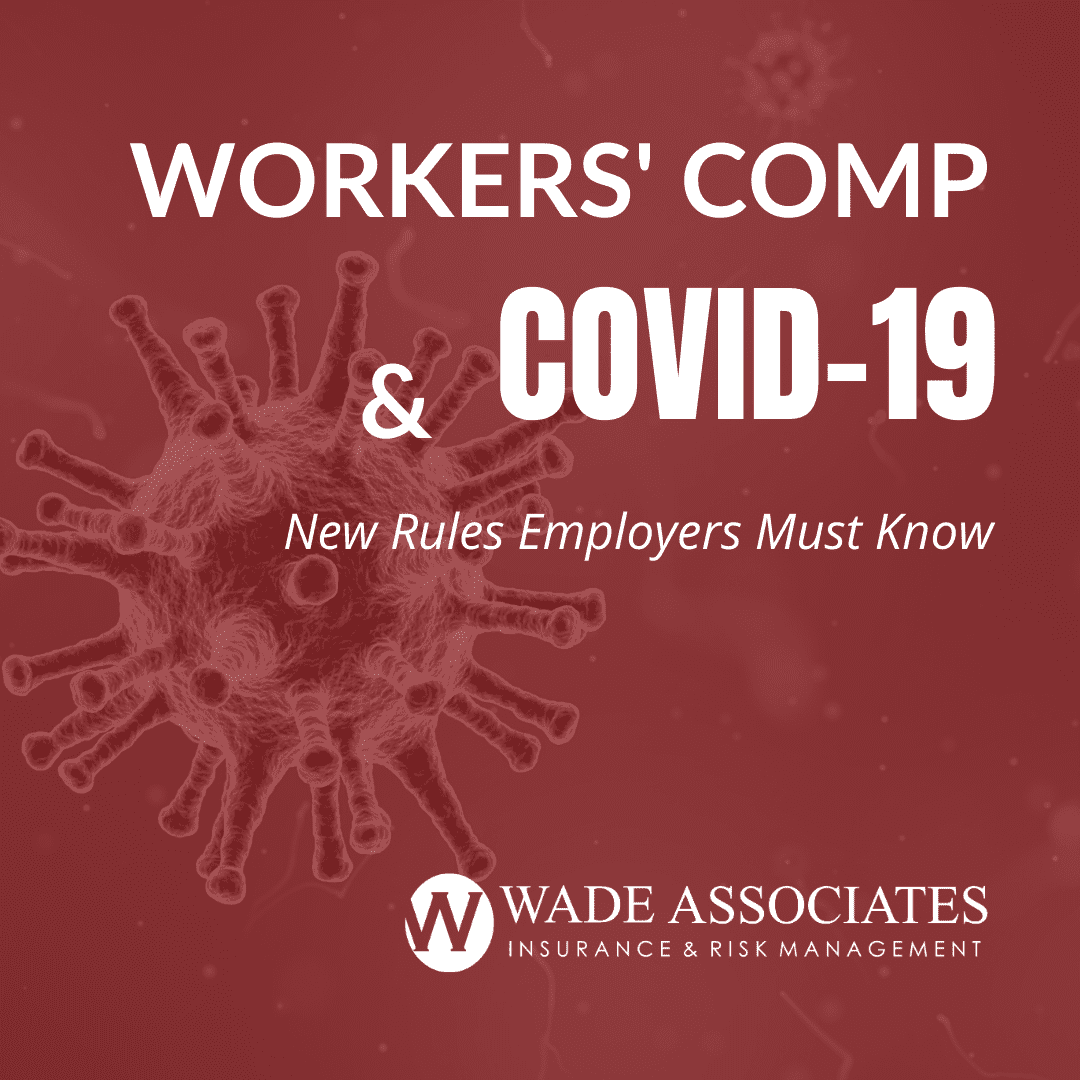
Workers compensation is already complex but the COVID-19 crisis created a whole new level of complexity. And with that, comes new rules employers need to be aware of…
Countless businesses across the country were impacted by COVID-19 and the subsequent government quarantine restrictions. As a result, thousands of employers were forced to lay off/furlough employees, leaving millions of individuals without work. Many employers however chose to continue paying their employees although they were at home and not working. So the question became, how does this impact workers comp?
New Workers Comp Rules for Furloughed Employees
The National Council on Compensation Insurance (NCCI), which is the governing body for all workers comp across the country, recognized that the circumstances around COVID-19 are extraordinary and warrant and expedited rule change. As a result, they filed a new rule on April 23rd allowing for the exclusion of monies paid to employees who are not working. The idea behind this rule is that if employees aren’t working, they don’t need workers comp coverage, so employers don’t need to pay premium for it. Shortly after that filing, nearly every state and independent rating bureau accepted it as the new rule in play.
According to the NCCI, “this rule change will be distinct from “idle time” under our current Basic Manual rules(Rule 2-F-1), and corresponding code 0012 will be created for reporting these payments. These payments will not be used in the calculation of premium”. In other words, a new class code (0012) has been created and payroll for employees not working will be allocated in the new code as opposed to their original code on the policy.
Important Notes About the Rule
- The exclusion of payroll will be applied during audit time. To exclude this pay from premium calculations, you must keep “separate, accurate, and verifiable payroll records” to provide the auditor after policy expiration. Without the appropriate records, the auditor will have no choice but to include that pay in your premium calculation.
- Organize your records now. Don’t wait until actual audit time to scramble around and try to retroactively build these records. Not only will that be a major headache but it may result in inaccurate data.
- This rule is only applicable when an employee is not performing ANY duties for you. Performing any work-related tasks, even while at home, does not qualify for this new rule.
- The period of time this rule will be in effective is March 1, 2020 and will expire on December 31, 2020. The expiration date may be adjusted as circumstances warrant. In other words, payments to employees who are not working inside this window of time can be excluded from premium calculations.
- This rule includes paid sick leave or paid FMLA approved by congressional action in response to the crisis.
Additional Payroll to Exclude from Premium Calculations
Not all payroll types need to be reported for workers comp purposes. In fact, there are over 10 different types of payroll that can be excluded from premium calculations. Reporting payroll that can be excluded is one of the most common mistakes that lead to premium overcharges. Review the list below to ensure you are reporting only what you are required to!
Included Remuneration (payroll)
- Wages or salaries including retroactive wages or salaries
- Commissions: If the employee is on a draw, and the draw is greater than commissions earned — use the entire amount of the draw;
- Bonuses, included stock bonus plans – unless the bonus is awarded for individual invention or discovery;
- Davis-Bacon wages or wages from a similar prevailing wage law;
- Pay for holidays, vacations, or periods of sickness;
- Pay for time not worked (i.e., paid for an 8-hour day when only 7 hours worked);
- Pay for travel time to or from work or specific job site;
- Employer payments of amounts otherwise required by law (i.e., Statutory insurance, Social Security, etc.);
- Contributions to a savings plan or vacation fund required by a union contract;
- IRS Qualified Salary Reduction Plan (i.e. 401K) (refers to the employee’s contribution and any qualified agreement between the employer and the employee to pay into a retirement plan in lieu of direct wages);
- Employee Savings Plans: Only the amount put in by the employee, not the employer’s match, (includes contributions to an IRA) if any;
- Payment on any basis other than time worked such as piecework, incentive plans or profit sharing plans;
- Payment or allowance for hand tools or power tools used by hand provided by employees either directly or through a third party and used in their work or operations for the insured;
- Car allowance (not a company car, a car allowance);
- The rental value of an apartment or house provided for an employee based on comparable accommodations, along with utilities paid by the employer on behalf of the employee;
- The value of lodging other than an apartment or house received by employees as part of their pay to the extent shown on the insured’s records;
- The value of meals received by employees as part of their pay to the extent shown on the insured’s record;
- Substitutes for money such as the value of store certificates, merchandise, credits or any other substitute for money received by employees as part of their pay or in lieu of pay;
- Expense reimbursements to employees to the extent that an employer’s records do not substantiate that the expense was incurred as a valid business expense; and
- Payment for filming of commercials, but this EXCLUDES subsequent residuals, which are earned by the commercial’s participants each time the commercial appears in print or is broadcast.
Excluded Remuneration (payroll)
- Tips & other gratuities (subject to minimum wage exceptions – meaning if hourly pay plus tips do not equal minimum wage, the amount to make up the difference is included as remuneration in the audit);
- Overtime: One-third of amount is subtracted from the total amount (one-half is subtracted if the employee earned double-time pay);
- Group Insurance/Pension Plan contributions made by employer;
- Special rewards for individual invention or discovery;
- Severance pay;
- Pay for those on active military duty;
- Employee discounts;
- Expense reimbursements – if substantiated by the employer’s records;
- Money for meals for overtime work;
- Work uniform allowance;
- Sick pay paid by a third party;
- Employer-provided perks (company autos, incentive vacations, memberships); and
- Employer contributions to salary reduction, employee savings plans, retirement or cafeteria plans.

Jay Roberts is a Master Work Comp Advisor (MWCA) on a mission to help employers take back control and eliminate their frustrations with workers’ comp. Through his advanced technical training, Jay is uniquely adept at shrinking Experience Mod Factors, preventing Experience Mod spikes, and identifying and correcting costly errors. Jay can be reached at Jroberts3@WadeICT.com or 704-654-5303
Portions of this article are taken from Are you Ready for the Work Comp Audit: Confirming Payrolls Used and used with permission of IIABA as it appears on the Association for Independent Agents, as well as the Institute of Work Comp Professionals



